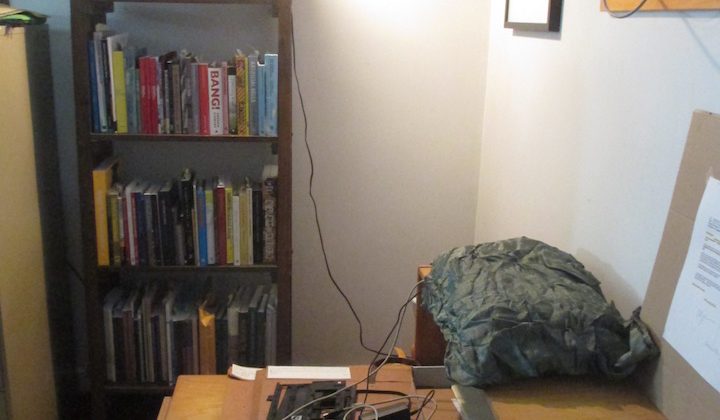I went to a brownbag talk by historian Ray Fouche this past week. He commented that he’d like to find more ways to communicate with “everyday folks,” rather than addressing academics all the time. So I asked him if he blogged. Then I inwardly laughed at myself, because I blog, but I don’t do it in order to “communicate with everyday folks” or many people at all. There are so many fascinating blogs out there that I don’t read, even occasionally. I can barely find time to write here; I think about blogging more than I do it. This blog serves as a sort of placeholder for thoughts that I might want to develop further, but I’d like it to be something more than that. Ray’s discussion about his own personal shift in the last year, prompted me to reflect on my changing habits as well: he now reads online rather than printing out documents; he now collaborates more online with other scholars; he feels less proprietary of his intellectual property. Many historians have been superceded by Wikipedia, he noted, and amateur historians or folks who have a deep expertise in one technology (like railroads) have erased a lot of academic “authority.”
As for my own changing habits: I edit online almost exclusively; I never use a pen and paper to write longhand if I can avoid it; and a lot of initial drafts of ideas end up in email “conversations” that have unrelated subject lines! Still, I am very attached to books and articles: somehow e-journals and wikis are uninviting to me because they force me to read or write onscreen and I spend hours and hours in front of a screen everyday already. I want to take a book and lie on the couch. I want to see what I write in published, hard copy. Blog rolls, wiki updates, and digital bookmarks–there is too much e-information out there for me to absorb during screentime. There’s a kind of materiality I need. I find highlighters, sticky notes, marginal comments, and colorful bookmarks very satisfying. Indeed, some part of myself finds print, or stone, or steel, or clay as validating and real. Virtuality is unembodied and ultimately ephemeral.
Ray also talked about using binaries–what he calls analog-digital synergies–to explore interstitial spaces. In these spaces, we can query how we invest ourselves in technologies, in terms of our identities and cultures. Ray said that technological change is also a crisis of identity. Clearly, giving up books would be a crisis for my identity, in so many ways. I’m sure there are hybrid ways of being; the whole point of binary oppositions is to bust them. Books AND blogs, not books OR blogs.

